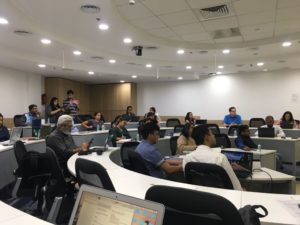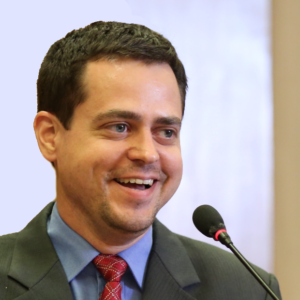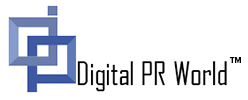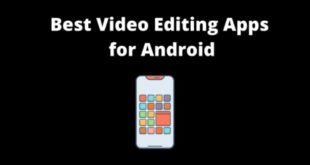Design Thinking
Design thinking is a formal method for practical, creative resolution of problems and creation of solutions, with the intent of an improved future result. In this regard, it is a form of solution-based, or solution-focused thinking—starting with a goal (a better future situation) instead of solving a specific problem. By considering both present and future conditions and parameters of the problem, alternative solutions may be explored simultaneously.
Design thinking is especially useful when addressing what is referred to as “wicked” problems. In the context of design thinking, the word wicked does not refer to maliciousness but, instead, to problems that are ill-defined or tricky.
In the case of wicked problems, both the problem and the solution are unknown at the outset of the problem-solving exercise. This is as opposed to problems where the problem is clear, and the solution is available by application of technical knowledge.
Divergent Thinking versus Convergent Thinking
Design thinking employs divergent thinking as a way to ensure that many possible solutions are explored in the first instance (note areas that widen, denoting emphasis on divergent thinking), and then convergent thinking as a way to narrow these down to a final solution.
Divergent thinking is the ability to offer different, unique or variant ideas adherent to one theme while convergent thinking is the ability to narrow the number of retained solutions to the given problem. Design thinking encourages divergent thinking to ideate many solutions (possible or impossible) and then uses convergent thinking to select the best approach.
Pearson Professional Programs
Pearson Professional Programs (PPP) partners with leading educational institutions, faculty and content providers from around the world to help working professionals update their skills and progress in their careers while making substantial improvements in the organizations that they work for.
Key Differentiators
• Our blended executive education programs span a variety of functions and industries, for participants of diverse seniority levels (top, senior and middle management).
• We deploy cutting-edge learning technology, classroom infrastructure and pedagogical methods. Although our faculties are leading experts from around the world, each program is carefully contextualized to speak to local business realities.
• Our solutions are cost-effective, flexible, learner-centric, scalable and are aligned with business goals.
• We firmly believe in creating unique learning journeys for the organization that fit in their context. In many cases we figure that the corporation has a unique strength in some of the areas we offer programs in – in such situations we combine the company’s strength with our own content and provide a custom program that helps the organization build and leverage it’s own area of strength while adding a layer of program management from our side.
Our Programs
Our enterprise learning suite includes: new manager entry point training, programs in the domain of business and management, new-age skills, and custom learning for senior leaders.
For more information, please visit http://pearson-professional.com/
Blended is the new online
While India is making progress in digitization, the Indian higher education is also evolving with key concepts defining and shaping the growth trajectory of the industry. One key concept that is disrupting and innovating teaching and learning process is Blended Learning. The concept is rapidly gaining pace in the Indian context as it is an effective learning solution that combines online teaching with offline touchpoints and vice versa, thus bringing the students the best of both worlds.
Though there is significant value to having face-to-face interaction in class, student abilities are enhanced when these are supplemented with blended learning methods that maximizes learning while providing students with convenience and flexibility. Pearson Professional Programs (PPP) offers blended executive education programs span a variety of functions and industries, for participants of diverse seniority levels (top, senior and middle management). It deploys cutting-edge learning technology, classroom infrastructure and pedagogical methods to help working professionals update their skills and progress in their careers, while making material improvements in the organizations that they work for.
Commenting on the innovative concept Varun Dhamija, VP & Business Head – Pearson Professional Programs said, “India is moving towards a new generation of skill sets and education platforms to meet global requirements. A blended learning approach optimizes the achievement of learning objectives with the application of appropriate technologies to match the personal learning style. At Pearson, we deploy cutting-edge learning technology, classroom infrastructure and pedagogical methods to create unique learning journeys for participants.”
In partnership with leading higher education institutions, faculty and content providers from around the world, PPP offer courses through blended learning that involves complementing traditional face-to-face programs with e-learning technologies such as live online sessions, simulations, discussion boards, group projects, classroom interactions, videos, and more.

Design Thinking is Iterative
The design thinking approach differs from the analytical scientific method, which begins with thoroughly defining all the parameters of the problem in order to create a solution. Design thinking identifies and investigates with both known and ambiguous aspects of the current situation in order to discover hidden parameters and open alternative paths which may lead to the goal. Because design thinking is iterative, intermediate solutions are also potential starting points of alternative paths, including redefining of the initial problem. The key practice that brings forth a great design is the practice of iteration. The iterative process occurs over and over until a design is considered worthy for implementation.
In contrast to a purely analytic approach, design thinking is a process which includes the building of ideas with few or no limits on breadth, during the brainstorming phase. This helps reduce team members’ fear of failure and encourages input and participation from a wide variety of sources in the ideation phases.
Identification of valuable yet initially seemingly unworkable solutions is one goal of the brainstorming phase and is encouraged. Brainstorming supports discovery of hidden elements, ambiguities, and faulty assumptions of a situation.
The Business Context of Design Thinking
Innovation is an increasingly central topic in business today and design thinking skills support innovation.
Business problems today are increasingly complex and tricky, hence design and innovation are a key competency for managers. Furthermore, design thinking plays an important role in the creation of a learning organization.
Despite the power of design in management, little attention has been paid to the subject in management education. While there has been significant business interest in design thinking in the last decade, in 2015 the design thinking pioneer Tim Brown assessed design thinking to be widely, but only sporadically, used in business. He argues that competitive advantage comes from sustained use of design thinking, from becoming “masters of the art.”

Vikas Singh
Managing Director, Pearson India
Pearson India
Vikas Singh is the Managing Director of Pearson India. Passionate about driving an organization’s vision, Vikas is responsible for spearheading the overall growth of the company in the Indian education sector, by driving robust business strategy and guiding excellence to strengthen company’s diversifying business. In the current role, Vikas plays a crucial role in making the region emerge as one of the most significant contributors to Pearson’s global growth strategy.
He joined Pearson in 2015 and was heading Higher Education & test Preparation vertical of the organization. In his previous role at Pearson, Vikas was responsible for leading a portfolio of products for the vertical, ranging across books, publications, digital products, services and integrated solutions. He was also responsible for strengthening and growing Pearson’s V-SAT technology enabled chain of test preparation centres, ETEN that offers coaching to CA, CS and IAS aspirants.
With over 25 years of rich experience, Vikas has managed various portfolios across marketing, operations and business management for the leading organizations such as Lakme, Gillette, Hutch and Airtel. Prior to joining Pearson India, Vikas headed the Indian operations for Kimberly Clark as the Managing Director.
He holds a graduate degree in Chemistry from St. Stephens College, University of Delhi and a post graduate degree in Management from Faculty of Management Studies, University of Delhi.
Vikas is an avid reader and enjoys trekking.
Joseph A. Hopper
Head – Learning Design
Pearson Professional Programs

Joseph is an accomplished international educationist and learning program designer who has been trained in Design Thinking and Innovation by IDEO in their San Fransico head office.
He previously served as a Director at the Indian School of Business where he created the Experiential Learning Program (ELP) and managed the Wharton Global Consulting Practicum. He has personally overseen over 100 consulting engagements for a wide variety of clients such as HP, Bombardier, Sony, Citibank, Goodyear, Maersk, SAP, SEBI, Microsoft, Mattel, ITC, Amazon.com, Google, ICICI Ventures and GE. He has also served as Dean of Sunstone Business School. He has also headed Corporate Development and Growth Through Innovation (GrIN) at NIIT Ltd.
Joseph holds a PGP (MBA equivalent) from the Indian School of Business, Hyderabad with a specialization in Entrepreneurship (Dean’s list). While there he co-authored a case study that is taught in the London Business School. He earned his B.A. from King University (USA) with a double major in International Business & Information Systems.
Varun Dhamija
Vice President – Pearson Professional Programs (PPP)
As a part of the PPP pilot, Varun has been responsible for incubating and now scaling this critical new growth engine for Pearson. His current mandate is to rapidly grow the PPP business to leverage the rapidly transforming Higher Education environment and meet the Pearson strategy goals.
Varun’s past experience makes him strong in running consumer-facing B2C businesses, meant to scale. Passionate in Edtech, Varun brings a unique combination of tech, product and business to the table.
He brings with him multicultural (US, UK, Australia. ME, China and of course India) experience across various industries, functions and geographies. Having led various businesses and functions, he has been instrumental in successfully demonstrating the ability to start, scale and turnaround businesses.
Varun has been part of Pearson since 2009 and he is a management graduate from Indian School of Business (ISB), specializing in Analytical Finance & Strategic Marketing. Prior to Pearson, he was associated with organizations like IBM Daksh, Convergys and Directi Internet Solutions.
In his spare time; Varun is busy with biking on his MTB or playing Playstation games with his son.
About Pearson India:
Founded in 1844, Pearson is the world’s learning company, with 35,000 employees across 70 countries worldwide. We have expertise in educational courseware and assessment, and a range of teaching and learning services powered by technology. Our mission is to help people make progress through access to better learning. We believe that learning opens opportunities, creating fulfilling careers and better lives.
Our unique insight and world-class expertise comes from our long history of working closely with teachers, learners, researchers, authors, and thought leaders. Our products and services are used by millions of teachers and learners around the world every day.
We are organized around three key stages of learning – a) K-12, b) Higher education and test preparation and c) Vocational and professional education. Established in India since 1998, Pearson has introduced its wide range of products and services in educational institutes as well as directly to the learners.
To know more about us visit in.pearson.com
and follow us on www.facebook.com/PearsonIn and https://twitter.com/PearsonIn


